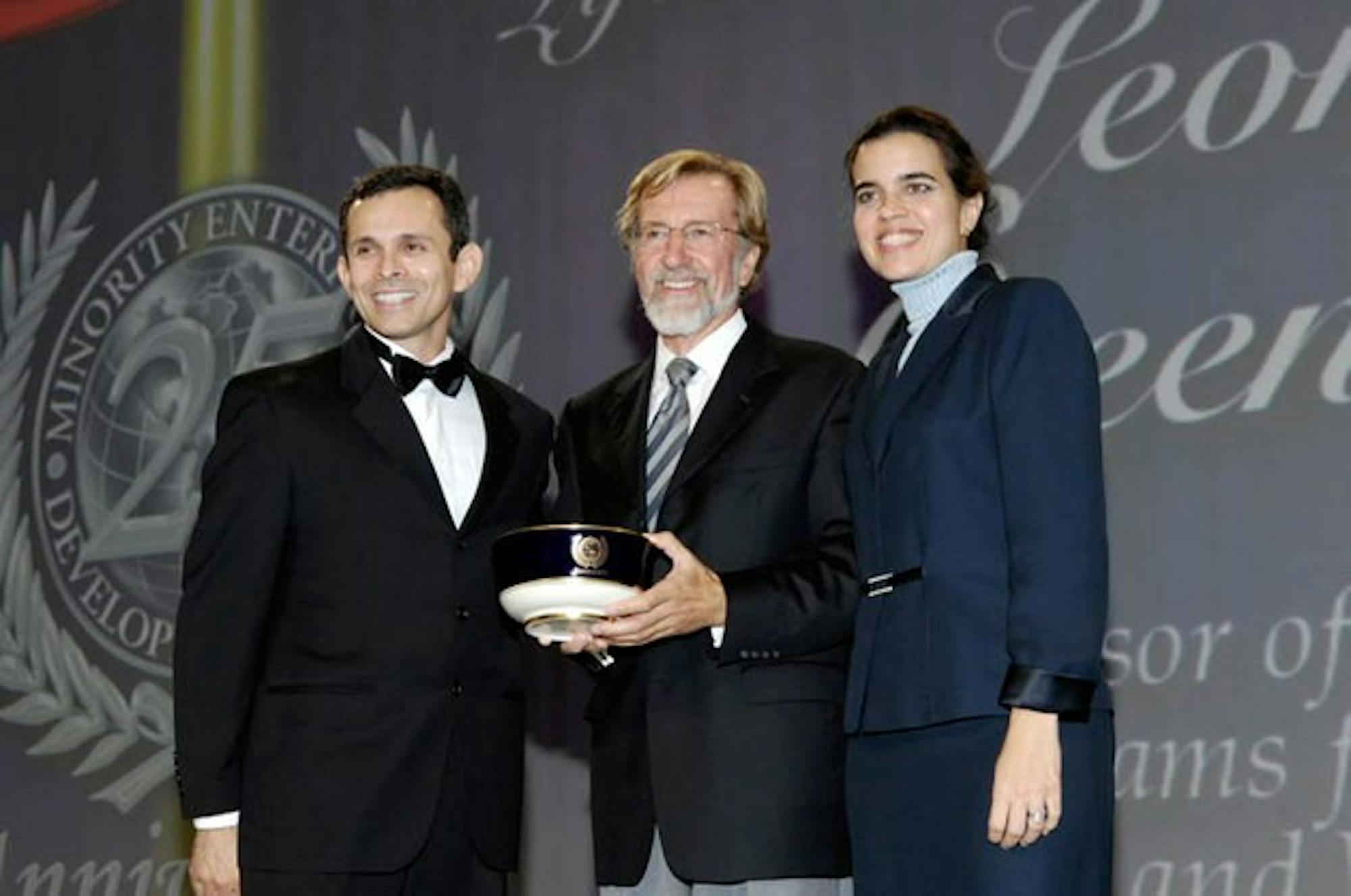"I arrived in the U.S., the land of opportunity and equality, the great social experiment, and I saw just how appallingly blacks were being treated," said Greenhalgh, the director of executive programs for Minority- and Women-Owned Business Enterprises at Tuck Business School. "It just didn't fit in with American dream as I saw it."
Although Greenhalgh decided to pursue a career in business, promoting social justice would always remain in the back of his mind. Greenhalgh's commitment to this cause was recognized in September, when he received the Minority Business Development Agency's lifetime achievement award for his work at Tuck's Programs for Minority- and Women-Owned Business Enterprises. Greenhalgh received the award, which is presented by the U.S. Department of Commerce, at the Minority Enterprise Development Week Gala in Washington, D.C.
The programs that Greenhalgh runs through Tuck are intended to teach minority business owners how to run their own business more efficiently, he said.
"When a person sets up an entrepreneurial business, they tend to know how to deliver a service or make a product better than they know how to run a business," Greenhalgh said.
Over the course of the program, Greenhalgh and other Tuck faculty give business owners specific advice about business administration. Six months after taking part in the program the companies perform a self-evaluation and report the results back to Greenhalgh. After completing the program, the companies are always performing better, and sometimes even double in size, Greenhalgh said.
Although the Minority- and Women-Owned Business Enterprises program started in 1980, its scope was relatively small until Greenhalgh took over as director in 2001, he said. Before this point, the initiative ran only two programs a year, both during the summer.
With the support of the Dean's office, Greenhalgh expanded the program so that it now runs 15 times throughout the year.
Greenhalgh stressed that the award also recognized Tuck's work in promoting the advancement of minority business owners for almost thirty years.
"The award acknowledges a long history and a unique effort. Nobody else in the country is doing what I'm doing and what Tuck is doing," Greenhalgh said. "This needs to be a national priority."
Greenhalgh noted that although Tuck is the "one of the smallest of the major business schools," it still has the biggest program in the world to help minority business owners.
"The minority becomes the majority by the mid-century, around 2051," Greenhalgh said. "Yet Tuck is the only business school that focuses on this group year round."
Greenhalgh also credited Dartmouth's role as a pioneer in minority rights in facilitating his work, pointing out that Dartmouth was the first Ivy League school to admit an African-American student. He also noted that, prior to the Civil War, 20 to 25 percent of all African-Americans who graduated from college were graduates of Dartmouth.
In the immediate future, Greenhalgh aims to get the program on "firmer financial footing," perhaps expanding the initiative's federal funding. Though the program has received federal grants to work with Native American and minority communities, these grants have only come in "from time to time," Greenhalgh said.
Greenhalgh has also received calls from foreigners who wish to provide business opportunities for their country's minority populations. Following the autumn 2005 riots in Paris which sparked discussion about the marginalization of France's minority population, countries realized that they must engage their minority populations, Greenhalgh said. Despite this demand, Greenhalgh does not intend to extend his programs internationally at this time.
The Minority- and Women-Owned Business Enterprises program was originally started by John Hennessey, who was then Dean of Tuck. According to Greenhalgh, Hennessey was interested in social issues and saw the program as a way for Tuck to take the lead in this area.




